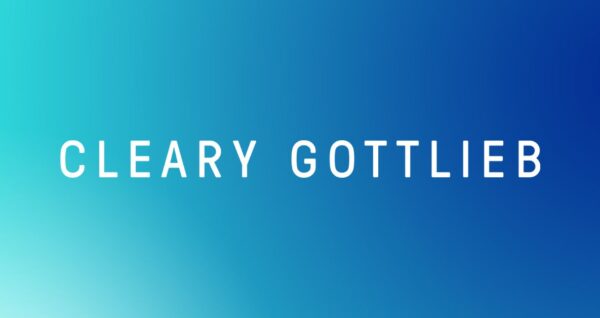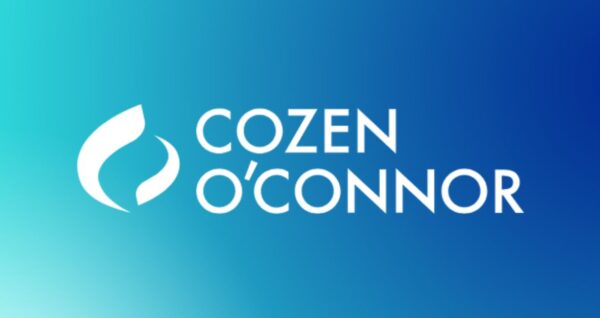A spotlight on Sanctuary Pro Bono Partner Cleary Gottlieb for their team’s outstanding work in helping reunite a family separated by abuse.
Sanctuary for Families’ Pro Bono Project has the honor of working with hundreds of extremely dedicated and expert pro bono attorneys per year. As part of our new Pro Bono Spotlight, we’ll be highlighting some of the great work done by Sanctuary pro bono attorneys!
*Please note that this blog contains descriptions of physical and sexual abuse that could be triggering*
Cleary Gottlieb Team Headed by Ludivine van der Heyden Provides Support in Complex Family Reunification Case
We are thrilled to highlight the outstanding advocacy by the law firm Cleary Gottlieb Steen & Hamilton LLP, and in particular the dedication demonstrated by Pro Bono Immigration Attorney Ludivine Van der Heyden, in a family reunification case that reunited a Senegalese mother with her two daughters against all odds.
Over the course of months and years, Cleary Pro Bono Immigration Attorney Ludivine Van der Heyden, along with Sanctuary Senior Staff Attorney Ines Chennoufi, Family Reunification Coordinator Karine Jeannet, and Senior Immigration Specialist Carolien Hardenbol, were able at long last to reunite Sanctuary’s Senegalese client, Ms. T, with her daughters.
Sanctuary’s client, Ms. T, had been forced to flee Senegal in 2019 after experiencing severe abuse at the hands of her former husband. Despite Ms. T having received a divorce order and full custody of the children, Ms. T’s abuser continued to track her across the country, threatening to kill her and vowing to subject their two daughters to Female Genital Mutilation (FGM). Given the imminent danger of her situation, Ms. T was forced to flee without her daughters, and she left them both in secure hiding places with the intention of quickly bringing them into the United States. Ultimately, with Ludivine’s representation, Ms. T’s case was expedited, she was able to prove that her life would be in grave risk were she forced to return to Senegal, and she was granted asylum in June 2021. Her asylee status provided a pathway for her daughters to claim the same immigration status as her derivatives. However, this would prove to be far from the end of the family’s legal troubles, as agency delays exacerbated by COVID-19 made the process of bringing the daughters over extremely lengthy.
Around February 2022, given the imminent danger of FGM and forced marriage to both daughters, Ines Chennoufi requested assistance from Senator Gillibrand’s Office to pressure USCIS to quickly adjudicate the daughters’ cases. The danger escalated when, in April 2022, the father located and unsuccessfully attempted to kidnap the younger daughter, Amy*, on her way home from school. In light of that kidnapping attempt and in fear of a second attempt, Ines once again reached out to Senator Gillibrand’s Office, and in a matter of weeks, USCIS approved the daughters’ applications to join their mother in the U.S. This critical approval resulted in the case being transferred to the National Visa Center before the case file reaches the Consulate Post in the home country, in this case in Dakar, Senegal.
What followed would be several more months of legal advocacy around nearly every stage of the cases’ transfer: advocacy to USCIS to swiftly transfer the cases to the National Visa Center and on to the consular post; advocacy to Senator Gillibrand’s office to push the Dakar Embassy to expedite processing (a request which was inexplicably denied by the Dakar Embassy); and multiple calls, emails, and unsuccessful visits to the Embassy from September through February in an attempt to schedule a visa interview for the two daughters. Despite the Visa Appointment Portal allegedly being open, there were no appointments available for over five months.
At this juncture, in January 2023, given the complete lack of action on the part of the Embassy, Ludivine, Ines, Carolien, and Karine knew that filing a federal mandamus complaint was the only option remaining to get an interview for the daughters scheduled. Such a complaint can be used to compel an agency, such as the Department of Homeland Security, to adjudicate a case when the client has a right to relief and there is no other remedy available. The complaint drafted by Cleary Gottlieb expertly laid out DHS’ duty to schedule interviews for Amy* and Maimouna*, her sister; the harm to Ms. T caused by this lengthy and arduous legal battle; and the current threat posed to the girls.
Ludivine reached out to the government’s counsel with a draft complaint in mid-March to start negotiations before filing the complaint. Two weeks after the initial contact, likely due to the strength of the arguments in the mandamus brief, the interviews were finally scheduled.
Things moved quickly after that—on April 19 Amy* and Maimouna* were granted their visas. Karine immediately got to work connecting the daughters with resources, including furniture for their home, an intensive English course, medical care, and housing. The daughters were joyfully reunited with their mother at the airport in New York on May 7, 2023.
We sat down with Ludivine to hear a bit more about her experience.
Why do you do pro bono work?
Pro bono work is a passion of mine and one of the reasons why I became a lawyer. The proximity with the clients, sharing their stories, learning about their cultures, speaking in different languages, all of that is something I really enjoy, especially coming from an international background.
What made you want to take on Ms. T’s case?
I developed the relationship with Ms. T when I was a senior staff attorney at Sanctuary. At the time, l worked hard to expedite her asylum interview during COVID at the asylum office. When I returned to Cleary, I continued my relationship with her as a pro bono working on her green card application. Around that same time, Sanctuary reached out saying, Ms. T has this issue with her girls – do you think you could help? And we said yes – we (at Cleary) have experience in Federal Court, I’m admitted to SDNY and EDNY, and we as a firm have connections with other organizations that specialize in litigating immigration courses in federal court. Through our network, we immediately were able to reach out to National Immigration Litigation Alliance (NILA), who provided a training on how to challenge agency delays. This was really key support – this was Cleary’s first mandamus case associated with derivative asylees, and we only had a few weeks to do this. We immediately started preparing a draft mandamus complaint. We worked with Sanctuary to gather the facts, and Cleary focused on the legal argument. It was a great collaboration between the nonprofit and private sector, where we were all contributing our expertise to support this survivor and her family.
What was your experience working with Ms. T like? How would you describe her?
She’s a remarkable client – really warm and smart, and she has the best smile in the world. She moved me as a mother fighting so hard for her daughters since the very beginning, and trying so hard to keep them safe. She’s also extremely determined and resourceful – very well-organized. Anyone who works with her becomes invested in her case.
What was the most challenging part of this process?
The unknown – not knowing if this was going to actually work or not. We had put in a lot of efforts into the complaint and had to manage the client’s expectations as well.
Which moment was the most impactful for you?
Probably meeting with the girls in New York. But every step of the way really, hearing that they had been able to board the plane successfully, telling the client that the interview had been scheduled and hearing her reaction… there were a lot of good moments. What made this case special was the continued relationship with Ms. T. We were following this family’s life and trying to make sure that they would get the best start in the U.S.
We are so grateful to the Cleary Gottlieb team for all of their advocacy and their assistance in drafting this mandamus complaint, which pushed DHS into action at long last, and we are in awe of the dedication and legal acumen demonstrated by Ludivine in her tireless work to help Ms. T seek safety and stability and to reunite this family.
Join the Cleary Gottlieb team in standing with our clients. Your gift supports Sanctuary’s life-saving work with survivors of gender violence.



